Attractions · Europe · Going Out · Regions · Spain · Western Europe
The most remarkable Spanish UNESCO Sites
Spain has the third highest number of UNESCO sites of any country in the world, with only China and Italy beating it by a few sites each. They include some of the most famous European monuments and instantly recognizable Spanish icons, from the spectacular Alhambra to Gauds fantastical Barcelona creations. There are other special places, however, which attract fewer headlines but which have a unique and irreplaceable appeal.
The indigenous blend of biodiversity and culture in many Spanish islands has received well-deserved UNESCO recognition. The beautiful, pristine island of Menorca captured UNESCOs attention for its landscape and its extraordinary plants and animals, many of which were both threatened with extinction and to be found nowhere else.
Menorca was declared a Biosphere Reserve by UNESCO in 1993. This status places it with just over 400 other globally important areas, where the rich history and wildlife are being supported in finding a way to co-exist with sympathetic development. Menorca also qualified for Biosphere Reserve status as a result of its still largely rural environment and its highly important archaeological treasures.
 Party capital Ibiza is not necessarily the first place that springs to mind as a nationally important historic and cultural centre. Shattering preconceptions about the White Island when it was declared a World Heritage City in 1999, Ibiza City is packed with treasures from antiquity. Its imposing sixteenth century fortifications, the historic graveyard of Puig des Molins, with stunningly preserved Phoenician and Carthaginian tombs, and the ancient Phoenician settlement of sa Caleta were all strong reasons for granting special status.
Party capital Ibiza is not necessarily the first place that springs to mind as a nationally important historic and cultural centre. Shattering preconceptions about the White Island when it was declared a World Heritage City in 1999, Ibiza City is packed with treasures from antiquity. Its imposing sixteenth century fortifications, the historic graveyard of Puig des Molins, with stunningly preserved Phoenician and Carthaginian tombs, and the ancient Phoenician settlement of sa Caleta were all strong reasons for granting special status.
 Perhaps the most unusual site of all, however, is the Posidonia of Ses Salines Natural Park. Posidonia is a dense form of seagrass that, whilst threatened across much of the Mediterranean Sea, is still abundant in Ibiza. Posidonia creates a haven for a highly diverse cross-section of marine life, providing a very special natural marine reserve in Ibizas coastline and sea. Amongst the species which benefit from the protection of the Posidonia are the Mediterranean monk seal and many migrating birds.
Perhaps the most unusual site of all, however, is the Posidonia of Ses Salines Natural Park. Posidonia is a dense form of seagrass that, whilst threatened across much of the Mediterranean Sea, is still abundant in Ibiza. Posidonia creates a haven for a highly diverse cross-section of marine life, providing a very special natural marine reserve in Ibizas coastline and sea. Amongst the species which benefit from the protection of the Posidonia are the Mediterranean monk seal and many migrating birds.
 On the Spanish mainland, extending across the border into France, the mountains of the Pyrenees play host to another rare haven of native culture and nature, Monte Perdido. The summit of the mountain lies within Spain. A UNESCO World Heritage Site since 1997, the huge reserve includes two national parks, the Pyrenees Occidentales National Park in France and the whole of the Ordesa y Monte Perdido National Park in Spain. A very famous former resident was the Pyrenean Ibex, which went extinct in early 2000 but which has the unprecedented accolade of successful de-extinction. A cloned specimen survived birth for a few minutes in 2003, and efforts continue to reproduce the species. Today, golden eagles, bearded vultures, boar and marmots and many other wonderful animals still call it home.
On the Spanish mainland, extending across the border into France, the mountains of the Pyrenees play host to another rare haven of native culture and nature, Monte Perdido. The summit of the mountain lies within Spain. A UNESCO World Heritage Site since 1997, the huge reserve includes two national parks, the Pyrenees Occidentales National Park in France and the whole of the Ordesa y Monte Perdido National Park in Spain. A very famous former resident was the Pyrenean Ibex, which went extinct in early 2000 but which has the unprecedented accolade of successful de-extinction. A cloned specimen survived birth for a few minutes in 2003, and efforts continue to reproduce the species. Today, golden eagles, bearded vultures, boar and marmots and many other wonderful animals still call it home.
 Much like Ibiza, Marbella and the Costa del Sol offer much for the luxury traveller to enjoy but don`t necessarily evoke world heritage. All the same, Andalusia has one of Spains newest, and quirkiest, UNESCO sites. Antequera Dolmens is made up of a set of Neolithic and Bronze Age tombs. Comprising three stone monuments, the Tholos of El Romeral and the Menga and Viera Dolmens, they are some of Europes most important gateways into understanding the ancient rites and funerals of prehistoric man.
Diverse as these remarkable sites are, they are all equally important parts of Spanish life and legend.
Much like Ibiza, Marbella and the Costa del Sol offer much for the luxury traveller to enjoy but don`t necessarily evoke world heritage. All the same, Andalusia has one of Spains newest, and quirkiest, UNESCO sites. Antequera Dolmens is made up of a set of Neolithic and Bronze Age tombs. Comprising three stone monuments, the Tholos of El Romeral and the Menga and Viera Dolmens, they are some of Europes most important gateways into understanding the ancient rites and funerals of prehistoric man.
Diverse as these remarkable sites are, they are all equally important parts of Spanish life and legend.
 Paola Fiocchi Van den Brande is Director of Passepartout Homes Ltd.
If you would like to be a guest blogger on A Luxury Travel Blog in order to raise your profile, please contact us.
Paola Fiocchi Van den Brande is Director of Passepartout Homes Ltd.
If you would like to be a guest blogger on A Luxury Travel Blog in order to raise your profile, please contact us.
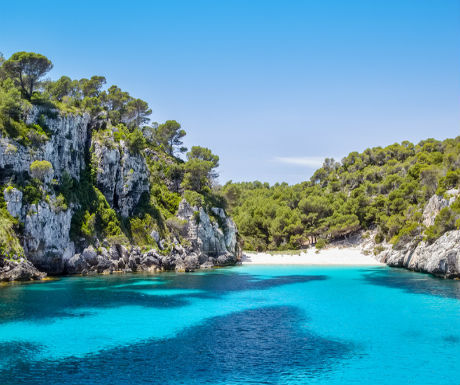 Party capital Ibiza is not necessarily the first place that springs to mind as a nationally important historic and cultural centre. Shattering preconceptions about the White Island when it was declared a World Heritage City in 1999, Ibiza City is packed with treasures from antiquity. Its imposing sixteenth century fortifications, the historic graveyard of Puig des Molins, with stunningly preserved Phoenician and Carthaginian tombs, and the ancient Phoenician settlement of sa Caleta were all strong reasons for granting special status.
Party capital Ibiza is not necessarily the first place that springs to mind as a nationally important historic and cultural centre. Shattering preconceptions about the White Island when it was declared a World Heritage City in 1999, Ibiza City is packed with treasures from antiquity. Its imposing sixteenth century fortifications, the historic graveyard of Puig des Molins, with stunningly preserved Phoenician and Carthaginian tombs, and the ancient Phoenician settlement of sa Caleta were all strong reasons for granting special status.
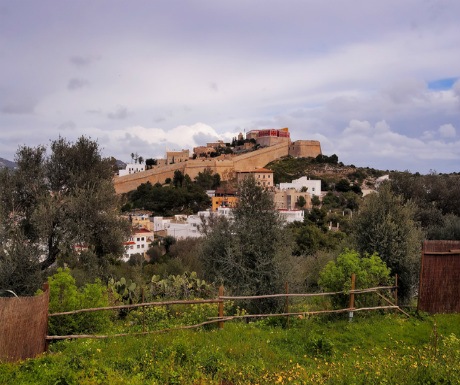 Perhaps the most unusual site of all, however, is the Posidonia of Ses Salines Natural Park. Posidonia is a dense form of seagrass that, whilst threatened across much of the Mediterranean Sea, is still abundant in Ibiza. Posidonia creates a haven for a highly diverse cross-section of marine life, providing a very special natural marine reserve in Ibizas coastline and sea. Amongst the species which benefit from the protection of the Posidonia are the Mediterranean monk seal and many migrating birds.
Perhaps the most unusual site of all, however, is the Posidonia of Ses Salines Natural Park. Posidonia is a dense form of seagrass that, whilst threatened across much of the Mediterranean Sea, is still abundant in Ibiza. Posidonia creates a haven for a highly diverse cross-section of marine life, providing a very special natural marine reserve in Ibizas coastline and sea. Amongst the species which benefit from the protection of the Posidonia are the Mediterranean monk seal and many migrating birds.
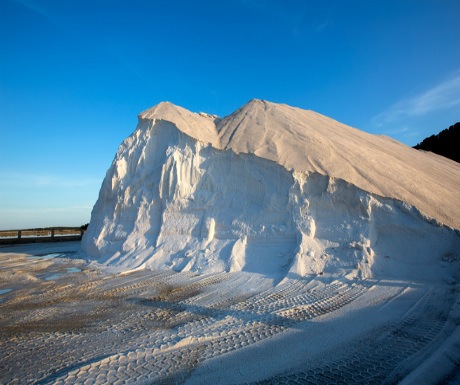 On the Spanish mainland, extending across the border into France, the mountains of the Pyrenees play host to another rare haven of native culture and nature, Monte Perdido. The summit of the mountain lies within Spain. A UNESCO World Heritage Site since 1997, the huge reserve includes two national parks, the Pyrenees Occidentales National Park in France and the whole of the Ordesa y Monte Perdido National Park in Spain. A very famous former resident was the Pyrenean Ibex, which went extinct in early 2000 but which has the unprecedented accolade of successful de-extinction. A cloned specimen survived birth for a few minutes in 2003, and efforts continue to reproduce the species. Today, golden eagles, bearded vultures, boar and marmots and many other wonderful animals still call it home.
On the Spanish mainland, extending across the border into France, the mountains of the Pyrenees play host to another rare haven of native culture and nature, Monte Perdido. The summit of the mountain lies within Spain. A UNESCO World Heritage Site since 1997, the huge reserve includes two national parks, the Pyrenees Occidentales National Park in France and the whole of the Ordesa y Monte Perdido National Park in Spain. A very famous former resident was the Pyrenean Ibex, which went extinct in early 2000 but which has the unprecedented accolade of successful de-extinction. A cloned specimen survived birth for a few minutes in 2003, and efforts continue to reproduce the species. Today, golden eagles, bearded vultures, boar and marmots and many other wonderful animals still call it home.
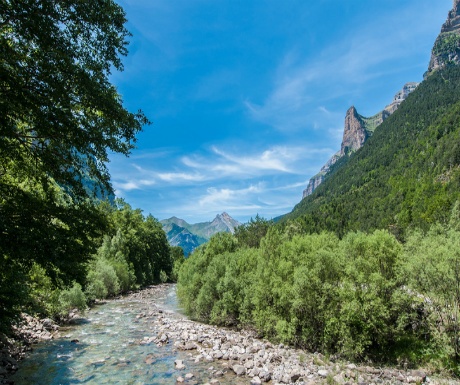 Much like Ibiza, Marbella and the Costa del Sol offer much for the luxury traveller to enjoy but don`t necessarily evoke world heritage. All the same, Andalusia has one of Spains newest, and quirkiest, UNESCO sites. Antequera Dolmens is made up of a set of Neolithic and Bronze Age tombs. Comprising three stone monuments, the Tholos of El Romeral and the Menga and Viera Dolmens, they are some of Europes most important gateways into understanding the ancient rites and funerals of prehistoric man.
Diverse as these remarkable sites are, they are all equally important parts of Spanish life and legend.
Much like Ibiza, Marbella and the Costa del Sol offer much for the luxury traveller to enjoy but don`t necessarily evoke world heritage. All the same, Andalusia has one of Spains newest, and quirkiest, UNESCO sites. Antequera Dolmens is made up of a set of Neolithic and Bronze Age tombs. Comprising three stone monuments, the Tholos of El Romeral and the Menga and Viera Dolmens, they are some of Europes most important gateways into understanding the ancient rites and funerals of prehistoric man.
Diverse as these remarkable sites are, they are all equally important parts of Spanish life and legend.
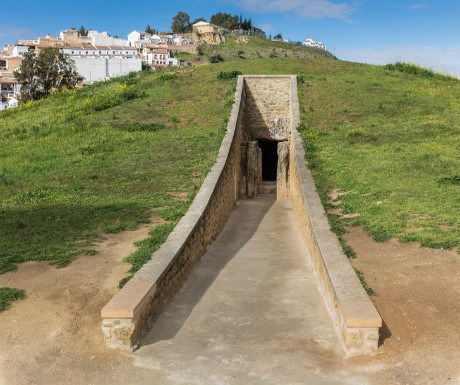 Paola Fiocchi Van den Brande is Director of Passepartout Homes Ltd.
If you would like to be a guest blogger on A Luxury Travel Blog in order to raise your profile, please contact us.
Paola Fiocchi Van den Brande is Director of Passepartout Homes Ltd.
If you would like to be a guest blogger on A Luxury Travel Blog in order to raise your profile, please contact us.Did you enjoy this article?
Receive similar content direct to your inbox.


Oh wow this sounds fantastic, I’m loving the photos. I would love to go and try to spot the golden eagles and bearded vultures – I wouldn’t expect to do that on a Spanish holiday really. You definitely had me at the word ‘quirky’, I’m definitely interested in visited Andalusia now! There’s definitely more to Spain than just relaxing holidays